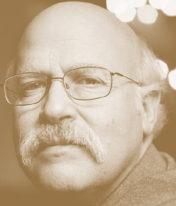Citation
Article 2 of the Constitution of the Praemium Erasmianum Foundation reads as follows:
Within the context of the cultural traditions of Europe in general and the ideas of Erasmus in particular, the aim of the Foundation is to enhance the position of the humanities, the social sciences and the arts, and to promote appreciation of these fields in society. The emphasis is on tolerance, cultural pluralism, and un-dogmatic, critical thinking. The Foundation endeavours to achieve this aim through the award of prizes and by other means; a money prize is awarded to a person or institution under the name of Erasmus Prize.
In accordance with this article, the Board of the Foundation has decided to award the Erasmus Prize for the year 2005 to Simon Schaffer and Steven Shapin.
The prize is awarded to professor Schaffer and professor Shapin on the following grounds:
- They have, singly and together, transformed our understanding of the history of European science since the seventeenth century.
- In their analysis they have linked fundamental innovations in science – such as the emergence of experiment as a method of inquiry – to political and social processes.
- As a consequence of their work, the history of science was thrust into the centre of discussions about what can count as knowledge for who and why and in which historical context.
- Research questions raised by Schaffer and Shapin, have contributed to the development of a new domain of study, in which the historical, sociological and philosophical study of science and technique became interwoven.
- Schaffer and Shapin have demonstrated that a historical approach is crucial for our understanding of the connection between science and society. They have shown us how science has come to play a central role in modern society, and how crucial public understanding is to the task of realizing its promises for the future.
- With insights derived from the historical study of science, Simon Schaffer and Steven Shapin have broadened and enriched the academic and societal debate about the role of fundamental science in our present society.
